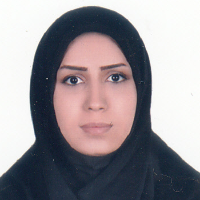The collective efficacy and emotional intelligence among healthy athletes and devotee and disable athletes
In team sports, team efficacy is an important factor in success, Therefore, the purpose of this study is to investigate the relationship between team efficacy and emotional intelligence among normal and disabled athletes.
This is a comparative research and the particiants includes healthy and disabled athletes of basketball, volleyball, football and futsal teams of Tabriz. 41 disabled athletes and 43 healthy athletes were selected as samples. Measurments has done by Schutte Self-Report Emotional Intelligence Test (SSEIT) (Salovey and Mayer, 1990) and Collective Efficacy Questionnaire for Sports (CEQS) was used to assess perceived team collective efficacy. Data were analyzed by SPSS software using ColmogrophSmirnov, multivariate analyze of variance (MANOVA) significant level of p<0/05.
According to the results there is a significant difference between total emotional intelligence and total collective efficacy among normal and disable athletes (F(2,81)= 3.29, p<0.042). Further analysis showed significant differences only in factor of regulating self-relevant emotions from emotional intelligence between healthy and disabled athletes (F(1,82)= 8.12, p<0.006). However, according score of mean, disable athletes have score of mean more than healthy athletes. As well as, according to the multiple regression results emotional intelligence can predict 13% of disable athletes and 57% of collective efficacy validity.
Emotional intelligence has more ability of predict the collective efficacy variability in healthy athletes compared with devotee and disabled athletes. Results suggest that coach for healthy athletes must use mental training for management of emotion.
-
The Effect of Unisensory and Multisensory Information Processing (Visual and Auditory) and Choking Under Pressure on Decision-Making in Badminton
Kosar Abbaspour *, Moahammadtaghi Aghdasi, Zahra Fathirezaie, , Stefan Schneider
Journal of Sports and Motor Development and Learning, -
The prediction of sport satisfaction based on coach's controlling behavior, athletes’ self-efficacy and motivation
*, Ali Abdollah Salem, Zahra Fathi Rezaei, Mahta Eskandarnejad
Journal of Knowledge of Sports Management, -
Relationship between perceived physical fitness and motor competence of female students
Samaneh Sadat Khalilirad, Hasan Mohammadzadeh, *
Journal of Mind, Movement, and Behavior, -
The Effect of Rhythmic Exercises on the Rebounder in children's Motor Skill and Motivation
Hasan Mohammadzadeh, *
Journal of Sports and Motor Development and Learning,




